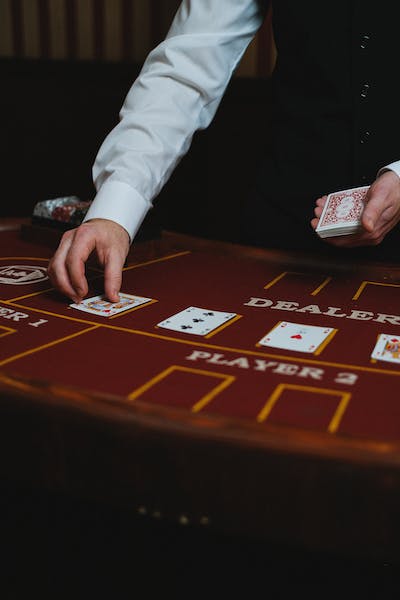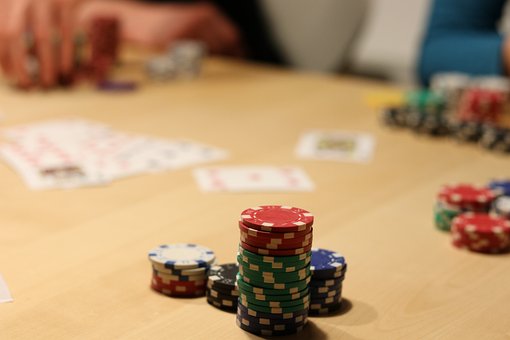Self-deal home poker games often have mistakes and disputes over the hand dealt. Some veterans have observed many players who could learn how to deal cards properly. This is a lesson on how to deal with cards.
The dealer has more responsibilities than just shuffling and dealing poker cards. They also supervise the game, manage the pot and bets, ensure that all players follow the rules, and distribute the winnings properly. In professional settings like competitions or casinos, special machines or dealers shuffle and deal the cards, but players take turns being the dealer for home games.
The dealer’s primary responsibilities include shuffling the deck to randomize the cards without revealing them and dealing with the cards quickly and accurately without exposing them. The dealer may handle both tasks during each turn in some games, while in others, one player shuffles a deck while the dealer deals with another.

The General Rules
To those who need to become more familiar with home poker games, it is essential to know the proper etiquette beforehand. Using plastic cards for the game is recommended, which are a bit pricey.
If not, it is common to use a new deck of cards for dealing. However, if you are hosting, it is up to you. When dealing, you should first shuffle the cards thoroughly at least seven times to ensure randomness.
To ensure the cards remain separate:
You can decide what criterion to use to determine the dealer. For example, you might make the first player who receives an ace the dealer or uses the jack or any other card you choose. Regardless of your choice, announce it as you deal the cards individually, with the cards facing upward.
After determining the dealer, dealing will continue as the game begins. The remainder of this message will provide more details about how to be the dealer in your home poker game.
Shuffling and Dealing
Before dealing with a hand, the cards must be shuffled to ensure they are randomly ordered. The cards should be shuffled four or five times and cut at least once. When dealing, make sure not to reveal the bottom card to any players, as this could reveal information about what cards are not dealt.
In Texas Hold’em, the dealer button moves clockwise after each hand. The position of each player relative to the dealer button decides when it’s their turn to act. The Small Blind, which is the first player to the left of the dealer, and the Big Blind, which is the player next to the left of the Small Blind, must place mandatory bets into the pot before any cards are dealt.

Learning “Cards Speak”
When you want to play poker with friends in the comfort of your own home, the standard rule in any home poker game is to follow the “Cards speak” principle. This means that the player with the best hand is determined solely by the cards, regardless of what they announce.
For example, if a player has a straight flush but only announces a straight, the straight flush still counts as the winning hand. As the dealer, you are responsible for identifying the winning hand and clarifying any confusion about its strength.
Tips on Dealing Better in Dealing at Home
To avoid missing cards mid-game, take a few minutes before the game to organize each deck by separating it by suit and arranging it by rank. Using a cut card for each deck is also recommended to prevent exposing the bottom card during dealing and to discourage cheating.
To start a new game round, ask one player to deal and request the player seated two spots to the left to shuffle a spare deck for the upcoming game. Once the shuffling is complete, the dealer should offer the deck to the player on his right for a cut. If this player declines to cut the cards, someone else can cut the deck instead. Then the dealer can proceed to deal the cards.
Some recommend using the poker table standard shuffle method, which consists of riffle, riffle, box, and riffle. You can watch a video of this shuffle method if you’re unfamiliar. Even if home game dealers cannot perform this shuffle perfectly, they should still try to follow it. It’s best to avoid the shuffle method that shifts clumps of cards from the top to the bottom of the deck. This type of shuffle often results in multiple series of cards grouped.

It is recommended to have the dealer call the game before beginning the deal, mainly when playing the dealer’s choice. Avoid calling the game after dealing has commenced or after all the cards have been dealt, as it may lead to games with up-cards being called after they have already been exposed.
This could give the dealer an unfair advantage since they may deliberately call a game to their advantage after viewing some of the exposed cards. For instance, a dealer could deal themselves a deuce and then declare that the game is “razz-7-card stud low.”
To avoid confusion, please ensure every player has their ante posted by the dealer. If the game only uses blinds, please ensure they are posted before dealing cards. If players prefer to ante individually, please have them post their antes in a specific order or collect them in order.
Conclusion
Poker nights at home can be a great way to practice and refine your strategy while you have fun with friends and family. It doesn’t matter if everyone plays for low or high stakes. The most important aspect of playing poker game is ensuring everyone understands the rules so that the game remains fair and entertaining.
Reviewing the rules beforehand will make it easier to explain to them as you get started with the actual play. Have patience with each other, recognize when a mistake has been made, and always be open to learning something new.
With determination, knowledge of basic poker strategies, proper bankroll management techniques, and a little luck, you are well on your way to mastering the art of gambling from your home. Hopefully, these tips will help make your next poker night more successful.

